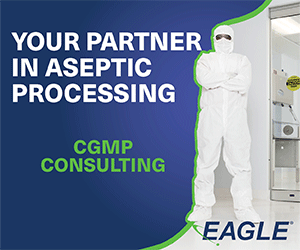Food for thought
The first factory to be constructed with antibacterial panelling may represent the future for cleanroom fabrication
Outwardly the ethnic food factory being built by Noon Products in the UK looks like any other large industrial unit on the edge of London, with only the faint, appetising smell of spices from the sister factory on the same site giving a hint of its purpose.
Based around a standard steel portal frame design with composite steel panels on the exterior, it is one of the largest of its kind in Europe, but internally it is radically different from anything that has gone before. This factory at Southall in Middlesex claims to be the first antibacterial food production plant in the world. All the ceiling and wall panels in high risk areas have a pre-finished surface coating using Microban. The new system is known as Assure and is the result of a 3-year joint development programme by steel company Corus and Microban International. Corus has been producing food-safe pre-coated steels offering passive protection for many years, and the Microban brand is already familiar to many consumers for its use in domestic kitchen items, such as chopping boards, food wrap, cleaning liquids and cloths. But, according to Jeremy Hughes, Corus business development manager, combining the two technologies in such a way in an industrial food manufacturing setting takes consumer protection to a new level.
Bacteria neutralised Assure works by neutralising the capacity of bacteria to function, grow and reproduce by interfering mechanically with the cell wall structure. It should be regarded as self-sanitising but not self-cleaning, Hughes stresses, and normal cleaning regimes should be maintained. However, between clean downs, the active component works continuously to prevent the growth of many of the pathogenic organisms found in a food production environment, including Salmonella enteritidis, E. Coli 0157, Listeria monocytogenes and Staphylococcus. Independent testing has shown that in high risk environments Microban protection can reduce bacteria loadings by up to 99.9%. The steel used for the ceiling and wall panels at the Noon factory began as galvanised sheet steel produced in coil form. The steel is then coated with either polymer film or liquid paint – the choice depends on the intended end-use of the steel – using conventional coil coating techniques. It is this coating that contains the active Microban component. During the production process, the Microban migrates throughout the polymer structure of the coating, residing in the intermolecular spaces to achieve an even distribution. At the surface, the active component partially emerges to create an antibacterial layer. The bulk of the active component remains within the coating and acts as a reservoir to replenish any of the Microban that is lost at the surface through wear and tear, such as scuffing or abrasive cleaning. Because the active ingredient is dispersed throughout the coating, tears or scratches do not affect the level of protection. The coating is designed to last for the lifetime of the product, as long as the coating retains its integrity. After coating, the steel coil is processed into sheets that are then formed into the final product, such as roof, wall or floor panels, machinery enclosures and casings and fittings, such as doors and shelving. Microban is non-toxic and approved for direct food contact by the European Union Scientific Committee for Food. It also complies with US FDA and EPA regulations and Australian and New Zealand Food Authority requirements. Its resistance to liquid extraction has been certified by independent laboratories and Assure can withstand most normal cleaning procedures. As well as the walls and ceilings, an antibacterial industrial flooring system is also being installed by Acrylicon, another Microban partner, to create a completely protected building envelope. In practice, the use of Microban will mean reduced levels of L. Monocytogenes in overhead ceiling condensation, reduced mould growth on walls and ceilings, and less contamination on walls from hand contamination.
Extension into other sectors The development of Assure is regarded as a natural extension of the Microban technology – an extension which seems certain to be continued into other market sectors, such as cleanrooms, HVAC systems, cold stores, hospitals, pharmaceutical and medical device manufacture, protective clothing and other textiles. This migration into other sectors will be facilitated by the fact that just as the type of coating can be selected to suit the application, the active ingredients can also be varied to suit different organisms likely to be encountered, including MRSA.




